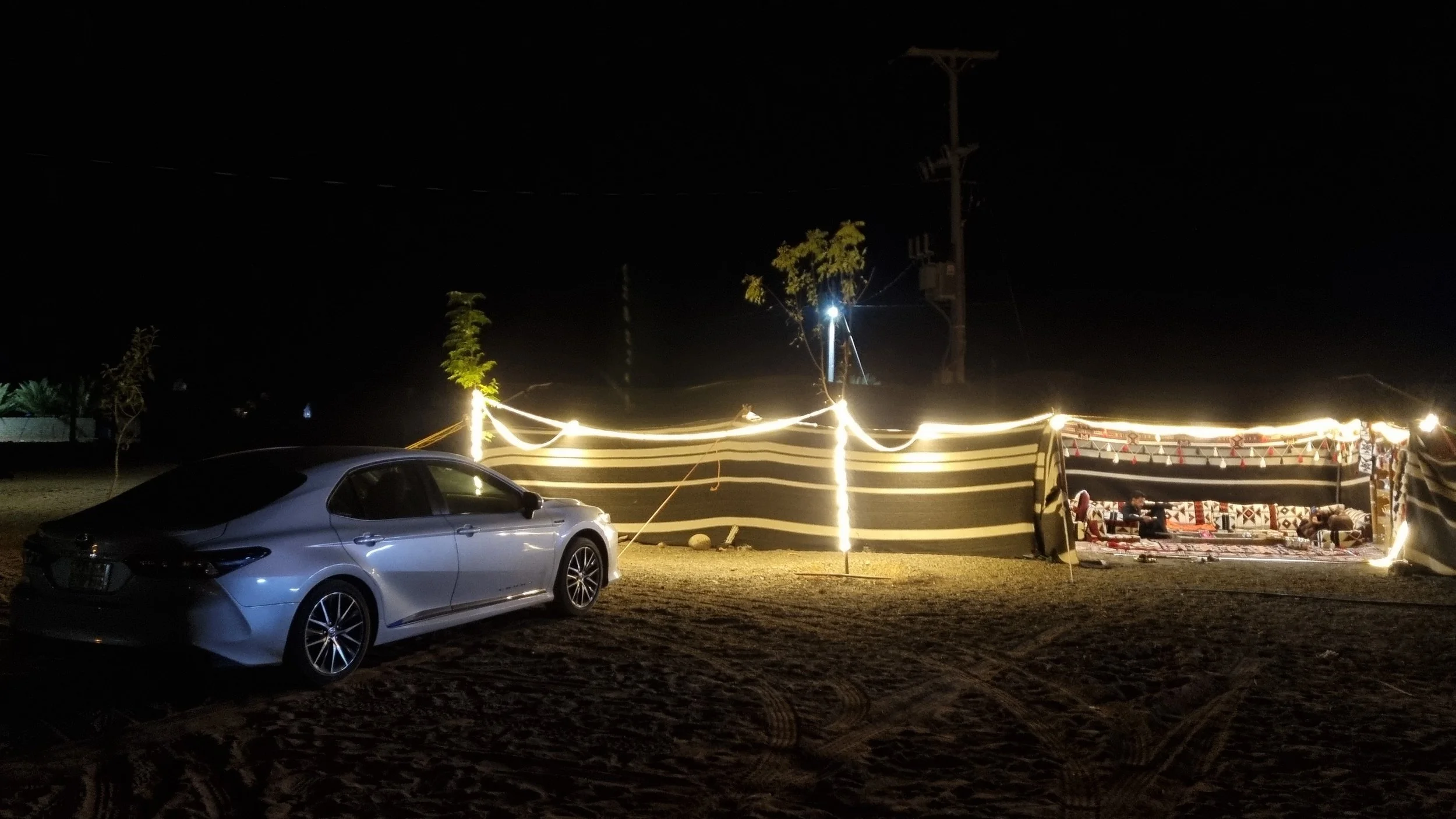One of his cousins and the cousin’s young son join us.
We visit the Mushroom Rock again. Hamoud doesn’t know its English name – in Arabic, it’s called “Neck and Head.” Along the way, we pass several camels wandering freely. I ask Hamoud if camel theft is ever an issue. “No,” he explains. “They’re marked, as every family has its own symbol. Plus, anyone who steals would face social ostracism, not just for themselves but for their descendants. No one would take that risk.”
We race through the sand, making sharp, thrilling turns. Along the way, we pass a few tents where shepherds and their animals stay. Hamoud is careful not to drive onto private property, though it’s hard for me to tell where one plot ends and another begins. Eventually, we climb a hill. Hamoud points to a darker mountain range in the distance. “Wolves live over there,” he says. Wolves! So, it might really have been wolves I heard last night. He explains that they sometimes come into the village and attack young camels, sheep, or goats – a problem similar to what’s seen in Europe. Wolves are protected by the government, and anyone caught killing one faces a fine of 25,000 Swiss francs.
Back at the house, there’s more tea and coffee as more friends and relatives stop by. One of them breeds camels and races them in Tabuk. Winning a race greatly increases a camel’s market value. His most expensive camel was worth 25,000 francs – about the price of a car, or as he jokes, the cost of shooting a wolf. Another camel, the most valuable one ever, was worth several million francs, but its owner refused to sell. It passed away some time ago, which attracted media attention.
The conversation shifts to marriage and relationships.
They explain that if a man has enough money and is interested in a woman, his sister or mother will first assess her suitability. If she seems like a good match, the father is approached for permission. If he agrees, the couple meets for about an hour to get to know each other. If everything goes well, the wedding follows. They’ve seen movies and have an idea of how things work in our culture, but are surprised to learn that couples in the West often live together for years without marrying.
Time flies by, and Hamoud insists I stay overnight. Some friends from Tabuk are coming, and we’ll visit his uncle’s tent. Since I won’t be traveling far today, I agree. Unfortunately, I realize too late that the breakfast leftovers have been thrown away. Food waste seems common here, which is a shame because it was so good, and I would have loved to save some for the next day.
I also miss the chance to see the sunset at Mushroom Rock because Hamoud’s cousin took the car. Instead, Hamoud shows me his garden. He mentions a tree that gives “ants.” Curious, I ask for clarification, and it turns out he meant “dates.” Communication is still a bit challenging, but Hamoud speaks the best English of anyone I’ve met in Saudi Arabia. Suddenly, someone brings Kabsa, a rice dish. The friends from Tabuk take longer to arrive than expected.
We head to Hamoud’s uncle’s tent, which is magnificent – decorated with lights and furnished with beautiful cushions. I feel like royalty.








